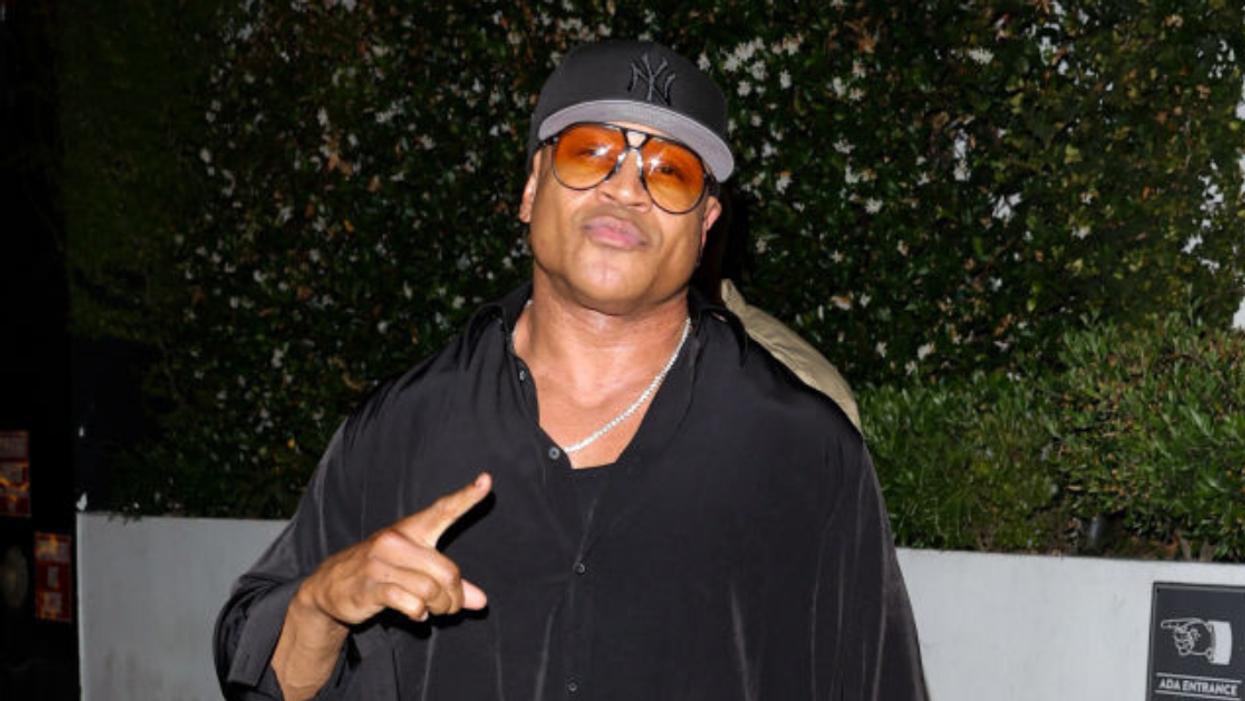You know, in 2024, it wouldn't be a Merriam-Webster new word entry without ruffling a few feathers, causing serious excitement, or maybe a little bit of both.
In recent years, some of the most debated new additions have been over the definitions of "woman," "racism," and the addition of the term, "second gentleman." Each of these additions led to conversations about representation, inclusion, and linguistic accuracy, and the conversations got really heated.
Now, a new word's inclusion is all about principle.
Last week, Merriam-Webster shared on their X (Twitter) account their definition of the verb "come back," which is:
"To recover from a deficit in a contest or competition."
On their website, they further explained the idiom:
"['Come back' is an idiom, meaning] to become strong, successful, or effective again after (an injury, failure, etc.)"
"For example, 'It can be difficult for an athlete to come back from an injury like this.'"
The very next day, famous American rapper and actor LL Cool J provided the perfect response to the definition.
"Don't call it that."
Fans were thrilled by the four-word response, as it directly referenced one of LL Cool J's most popular songs in the '90s.
LL Cool J was one of the first rappers in the 1990s to achieve commercial success, and he maintains both a following and a nostalgic crowd of fans to this day.
The famous 1990 hit, "Mama Said Knock You Out," opens with the following lines:
"Don't call it a comeback. I been here for years."
"I'm Rockin' my peers, puttin' suckers in fear."
"Makin' the tears rain down like a monsoon."
"Listen to the bass go boom."
You can watch the official music video here:
- YouTubewww.youtube.com
And Merriam-Webster did not miss a beat, coming back with a response moments later.
"We've been here for years (since 1828)."
We’ve been here for years. pic.twitter.com/6nlvJQ6KXi
— Merriam-Webster (@MerriamWebster) August 8, 2024
Some people unapologetically rode the wave of nostalgia.
comeback - what @llcoolj says not to call it.
— John Q. (@JohnQPS122) August 7, 2024
Also a great @PearlJam song
— greg (@audiopanacea) August 7, 2024
DON'T CALL IT A COMEBACK I BEEN HERE FOR YEARS
— (((not a billionaire))) (@kitten_mindful) August 7, 2024
Comeback King?
— J.C. (@JonCfield) August 8, 2024
Woohoo let's go @llcoolj love your music 🎶 🎵 and acting your a true GOAT 🐐 appreciate you
— Jessie Currie (@jladycurrie) August 8, 2024
Oh mother of god that’s perfect.
— Stuart Phillips (@deltawriter12) August 9, 2024
Others applauded LL Cool J and Merriam-Webster for their banter.
Aight, this is good
— JG (@MicTysonBV) August 9, 2024
y’all are so real for this
— Shae (@shaemoi) August 8, 2024
This thrilled me 😅
— Leta McCollough Seletzky, JD 🐳 (@LaSeletzky) August 8, 2024
Iconic.
— Kimberly Spell on X (@kimberlyspell) August 8, 2024
You had one job…and you did it perfectly.
— clement clemensen (@cdclemensen) August 9, 2024
This is the best thing that has happened on the internet today and you can’t convince me otherwise.
— S Crev (@resserc74) August 8, 2024
And Merriam-Webster had to give credit where credit was due, sharing the definition of "GOAT."
"GOAT, or G.O.A.T.: the greatest of all time."
https://t.co/w2pBpKcoY3
— Merriam-Webster (@MerriamWebster) August 8, 2024
There's nothing like a little nostalgia and lighthearted rivalry to get people talking about language and the Merriam-Webster dictionary.
I mean, if throwbacks like this won't get kids reading (the dictionary), what will?!








 @PreetBharara/X
@PreetBharara/X @RepBrendanBoyle/X
@RepBrendanBoyle/X @twesq/Bluesky
@twesq/Bluesky @christopherharris/Bluesky
@christopherharris/Bluesky @evangelinewarren/X
@evangelinewarren/X






 @FrankC164/X
@FrankC164/X
 AMC
AMC